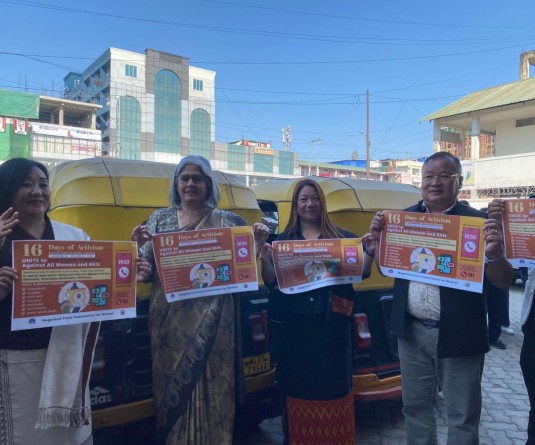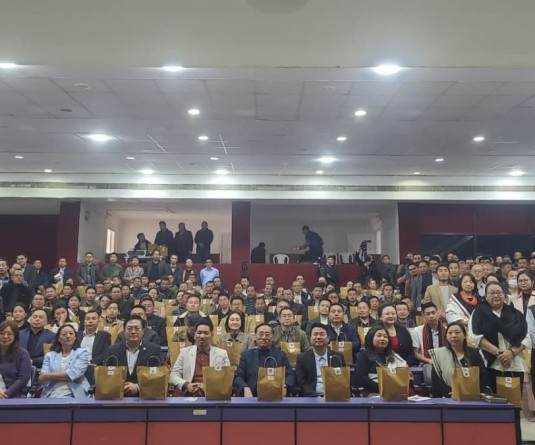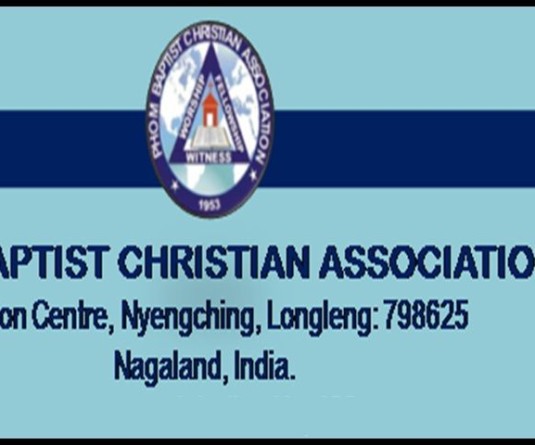
Kohima, May 30 (DIPR): Family Planning Association of India (FPAI), Nagaland Branch conducted two awareness programmes on menstrual hygiene management at Mezoma village in collaboration with Sanitary Napkins Production Unit under Science and Technology Department, Government of Nagaland.
Commemorating both 3rd global Menstrual Hygiene Day and International Women’s Health Day which fall on May 28 annually, FPAI conducted the programmes focusing on reproductive age groups. Free sanitary napkins were also distributed to the participants by the Sanitary Napkins Production Unit.
Ville Rhetso, Counselor, FPA India, briefed about Menstrual Hygiene Day and International Women’s Health Day. She recollected that the first global Menstrual Hygiene Day was observed on May 28, 2014, initiated by German-based NGO WASH United (Water, Sanitation and Hygiene). It became a global awareness day dedicated exclusively to putting spotlight on menstrual hygiene and breaking the silence around menstruation.
Referring to this year’s theme, ‘Menstruation Matters To Everyone, Everywhere’, she cited menstrual hygiene management (MHM) as a trigger for better, stronger development of women and girls - personal, educational and professional. She declared to the girls and women that time has come to break the silence around menstruation and that MHM is vital in our society as there are many health issues related to unhygienic habits.
“Menstruation is a normal biological process and a key sign of reproductive health, yet in many cultures it is treated as something negative, shameful or dirty and there are also myths and taboos relating to menstruation,” he stated.
She further informed that MHD was created to publicly recognize the right of women to hygienically manage their menstruation wherever they are. Stressing on why menstruation matters, she urged the girls and women to start the conversation around menstruation unashamedly and even educate boys and men to help foster a supportive environment for girls and women.
Kikrusetono Nisa (M&E Officer) enlightened on human rights that enable women and girls to manage their menstrual hygiene adequately, with normalcy and in dignity. She asserted that human rights enable women and girls to access clean water, good health, sanitation, education, gender equality and healthy environment at home, schools and workplace. She also talked about some challenges while managing menstrual periods safely and how to overcome them.
Meanwhile, Mereena Domeh, Project Supervisor, Sanitary Napkins Production Unit spoke about sanitary napkins produced by the unit. She informed there are two varieties of napkins made - the thin one is a gel coated fabric, non-woven cloth and non-permeable cloth, while the thick product is made of wood-pulp and non-woven cloth. She stated both are cost effective and hygienic and easily decomposable. Further, she informed that no chemical is used to produce the napkins; they do not stink nor do they have any side effects. They also give relief from the abdominal pain, she said. It was informed that in the North East, the napkins production project is running only in Guwahati and Kohima and has been benefitting a large cross section of women in Nagaland.
Thejaseno Ltu, Staff Nurse explained the female reproductive system and its function to the villagers.
Participants in both the programmes were made to write on postcards why menstruation matters to them.
Dr. Vizokholie Keyho, MO, PHC exhorted the participants on the value and importance of good health and hygiene.
The other highlights of the program included lab services (HIV, Hepatitis B & C counseling & testing). Family Planning devices were also provided to the women.






